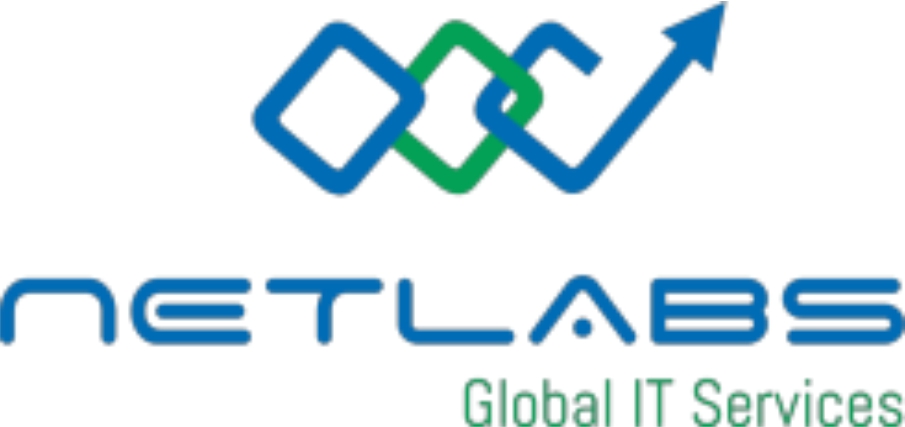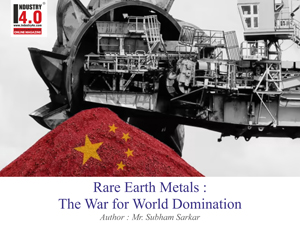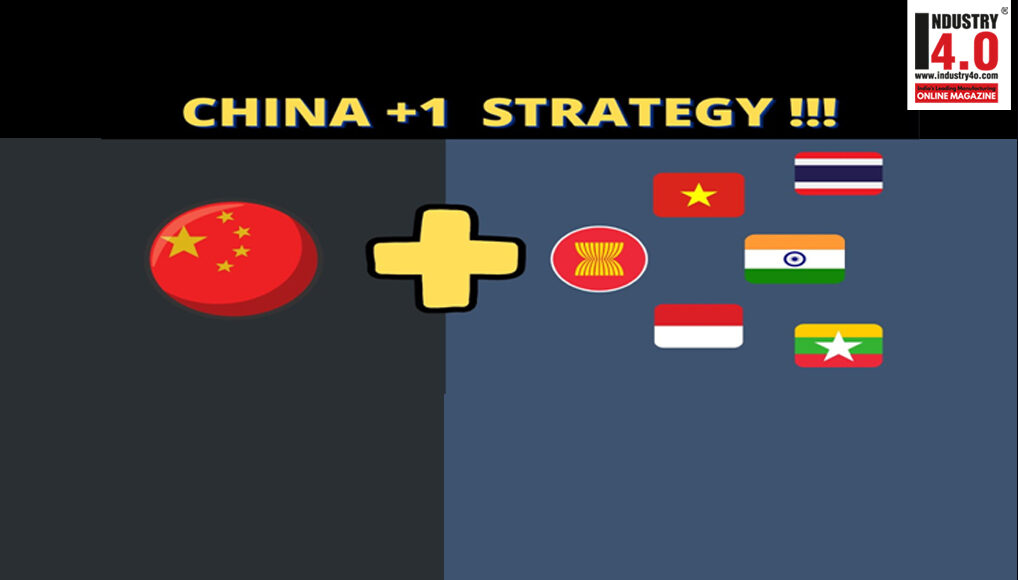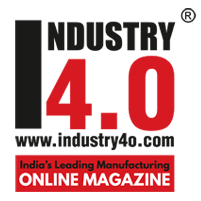Rebooted Global Supply Chain – A “China Plus One” Strategy
A Blog Series on Geo-Politics & Geo-Economics
The line between disorder and order lies in logistics… – Sun Tzu
Over the past few decades China’s spectacular rise in the world stage in all spheres of life – be it geopolitics, economy, military, culture, sports, science, space, etc. has changed the global world order. From China becoming the “factory of the world” of almost every manufactured product, the world has also “silently” acquiesced to China’s stranglehold on the global supply chain for finished products, sourcing of raw materials, minerals, etc.  One cannot blame China for it, except grudgingly accept it! They stuck to their strategy of ruling the roost of the “globalisation” drive of the past three decades by prioritising investments in building infrastructure and manufacturing capabilities at unprecedented scale and speed. They further focused on execution based on their strengths, while plugging their weaknesses (not necessarily with fair play in this aspect though, while the rest of the world cut China a slack and looked the other way!).
One cannot blame China for it, except grudgingly accept it! They stuck to their strategy of ruling the roost of the “globalisation” drive of the past three decades by prioritising investments in building infrastructure and manufacturing capabilities at unprecedented scale and speed. They further focused on execution based on their strengths, while plugging their weaknesses (not necessarily with fair play in this aspect though, while the rest of the world cut China a slack and looked the other way!).
However, of late two phenomena have made the world sit up and do things differently, viz.,
a) COVID pandemic–while the entire world is still learning to live with it and counting the costs of the havoc unleashed by this pandemic, the jury is still out there with regards to its source/origins, and intentions!
b) Geopolitical upheavals– Trade war between the US vs China, Russia’s invasion of Ukraine, and China’s utter disregard of treaties and pacts demonstrated by its by gobbling up of Hong Kong + browbeating Taiwan on a daily basis + “salami slicing” tactics of encroaching territories of its neighbours like India, Nepal, Bhutan, Mongolia, Kazakhstan, etc. + “debt trap diplomacy” coercion of smaller countries like Sri Lanka, Bangladesh, Myanmar, African countries, Pacific Island nations,etc.
The two aforesaid phenomena have disrupted the existing global supply chain in an unprecedented way. China’s authoritarian approach of COVID handling by completely shutting down its affected cities and factories(even when cases were/are not necessarily in big numbers) meant large-scale supply chain disruptions of all kinds of goods and commodities. Similarly, with the Russia-Ukraine war and the US-China trade frictions & the resultant enforced sanctions on Russia and unwritten ones on China, there have been further disruptions in the global economy and supply chain.
The world (countries, companies, people) hence has come to a conclusion that there cannot be dependence on only China for everything. This has led to major economies of the world coming together and working out an alternative global supply chain strategy called “China plus one” or “Plus one”.
This strategy entails global companies/MNCs (with heavy investments made in China) changing the rules of the game by pulling out part of their manufacturing bases in China and diversifying their sourcing options &rerouting their supply chain to other countries, thereby decoupling and reducing their over-dependence on China.
Some examples of such a rebooted supply chain are as below:
1. Japan is encouraging their companies who have made large-scale investments in China, to move their plants outside China to countries like Vietnam, India, Indonesia, Malaysia, Thailand, Bangladesh, etc. That Japan is serious in this regard is borne out by the fact that they are also giving fiscal support to such companies by setting aside around US$ 2.2 billion for this purpose!
2. With regard to some high-tech sectors like Telecom, Aerospace, Automotive, etc., countries like the US, European Union, South Korea, Japan etc. are nudging their companies to look beyond China and set up plants and units in India, Vietnam, Indonesia and other countries (e.g., Apple/Foxconn, Google, Samsung, LG, Nokia, Ericsson, Sharp, Sony, Nintendo, Zoom, Dell, HP, Microsoft, Intel, Boeing, Hyundai, Kia Motors, etc.).
Details can be found here https://www.lovemoney.com/galleries/98705/big-multinational-companies-moving-out-of-china?page=1
3. Specific to Chips (semi-conductors), to reduce China’s strategic hegemony and control on the global supply chain of chips,the US has come up with its CHIPS bill with a budgetary allocation of a whopping US$ 52.7 billion for incentivising companies to manufacture semi-conductors in the US. Similarly, India has its own Production Linked Incentive (PLI) scheme for semi-conductor manufacturing in India with a budgetary outlay of INR 76,000 crores (roughly US$ 10 billion)
4. In sectors like Apparels, Footwear& Toys, large global players and retailers (e.g., GAP, Zara, H&M,Under Armour, Nike, Adidas, Puma, Hasbro etc.) are shifting their sourcing from China to countries like Vietnam, Bangladesh, India, Sri Lanka, Philippines, etc.
5. With regard to some low-tech sectors with polluting industries, even China themselves are pushing out companies to other countries in Central Asia (Kazakhstan, Turkmenistan, etc.), Pakistan (CPEC investments!), Cambodia, Laos, etc. This is being ostensibly done with China saying that it now needs to focus on the higher end of the value chain!
6. Apart from shifting out of manufacturing bases/capacities, multi-lateral trading blocs like the Indo-Pacific Economic Framework (IPEF) are also keeping out China. Smaller but significant blocs like the QUAD grouping (Australia, India, Japan and the US) and the I2U2grouping (India, Israel, UAE and the US) also have their own supply chain strategies that are planned to reduce dependence on China
7. India is making its supply chain and trading routes resilient with investments in ports like Chabahar in Iran (on the Arabian Sea), another Indian deep-sea port to be developed in West Bengal by the Adani’s (Tajpur on the Bay of Bengal) and the India-Arab-Mediterranean corridor, India is keeping its trading route options open with Central Asia, ASEAN, and ME & Europe, respectively
8. To take advantage of this Plus One strategy and strengthen its infrastructure & business environment, India has also recently unveiled its National Logistics Policy, with four pillars viz., Integration of Digital System (IDS), Unified Logistics Interface Platform (ULIP), Ease of Logistics (ELOG), and System Improvement Group (SIG)
All these show that the world has realised that it is NOT a wise strategy to “keep all eggs in one basket” – albeit belatedly but “better late than never”.
Whether this Plus One strategy will be a success depends on execution on the ground and also how China devises its own counter-strategies. Only time will tell!
PS : For anyone interested, it should also be useful to read the article authored by Foo Check-Teckon “Exploring thinking from antiquity in managing logistics, supply and resources: Chinese Sun Tzu, Indian Kautilya and supply chain management”.
A pdf version of this article is available for download at : https://www.semanticscholar.org/paper/Exploring-thinking-from-antiquity-in-managing-and-Check-Teck/6d4fee9af197c44892af81f622237eca45911602
Disclaimer: The contents of this article are purely in an individual capacity and based on the personal opinions of the author.
About the Author :

Mr. Subham Sarkar
Chief Strategy Officer
 Netlabs Global IT Services Pvt. Ltd.
Netlabs Global IT Services Pvt. Ltd.
Mr. Subham Sarkar is an experienced senior management professional in the IT services realm with a flair and good understanding of the macro economics and dynamics of the world economy, how the ever evolving technology landscape is opening up newer possibilities for both enterprises and consumers, key business drivers of various industry types – and how all these can be assimilated to conceptualise an executable strategy for the growth of an IT services organisation, and also incubating and executing on these with the various stakeholders and teams.
Mr. Subham Sarkar core basic objective is to be known and respected as a professional and a good human being in his sphere of influence – one who continuously strives for excellence, while contributing meaningfully to his profession, to the society he live in and most importantly his family.
Mr. Subham Sarkar is Bestowed with the following Licenses & Certifications :
https://www.linkedin.com/in/su
Mr. Subham Sarkar can be contacted at:
Mobile : +91 81476 52280, +91 97404 44009
E-mail : [email protected] / [email protected]
LinkedIn : https://in.linkedin.com/in/subham-sarkar-519b7114
Netlabs Global IT Services – Social Media Links:
LinkedIn : https://www.linkedin.com/company/netlabsglobal
Twitter : https://twitter.com/netlabsglobal
Website : http://netlabsglobal.com
Also read Mr. Subham Sarkar‘s earlier articles: 















